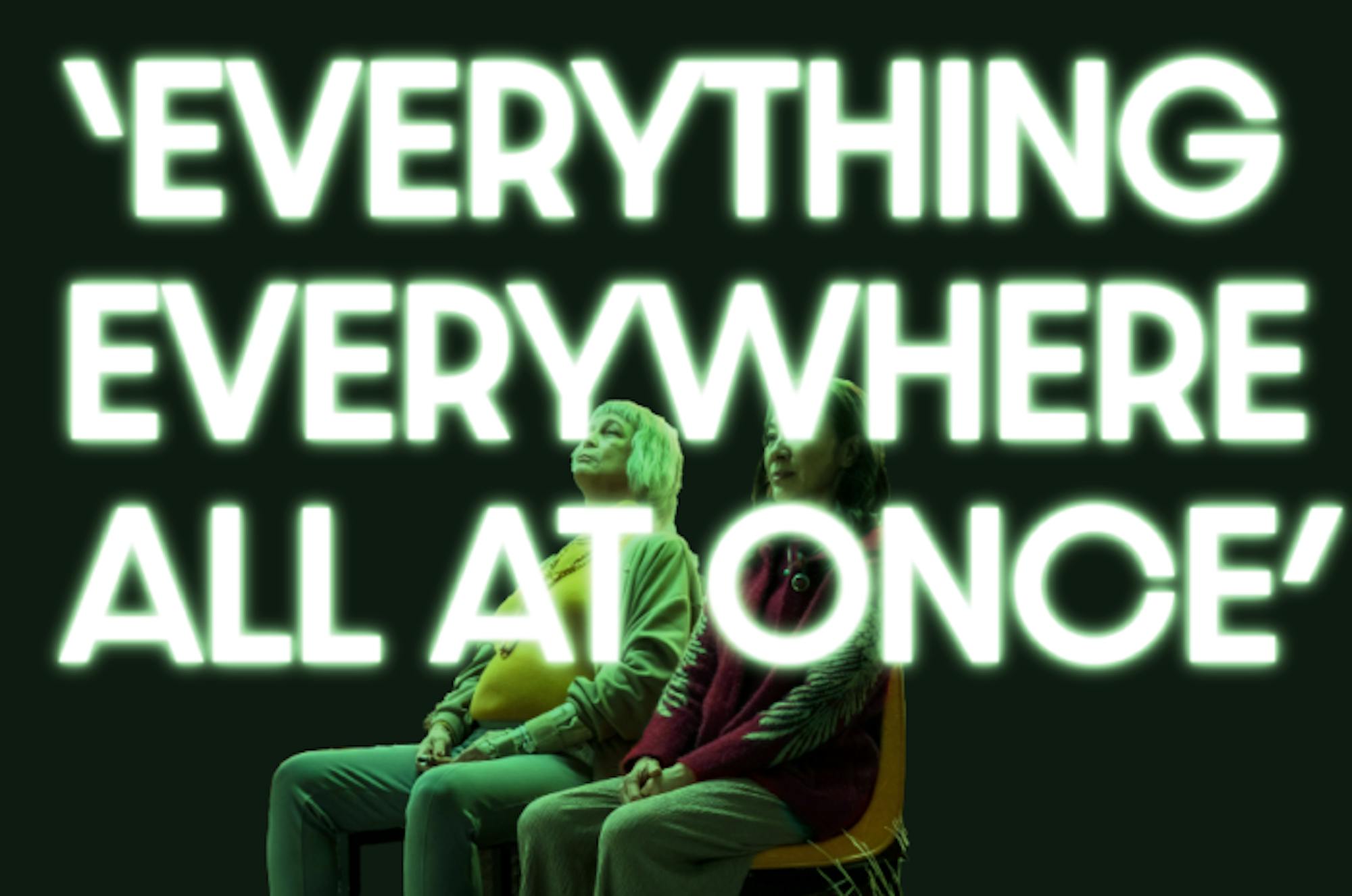
In light of the spectacular reception of “Everything Everywhere All at Once” at the box office, I thought it fitting to unpack the implicit philosophical message of the film. I recall emerging from the movie theater bewildered by the pathos and cinematic quality of “Everything Everywhere All At Once." But, I was also remarkably conflicted in my feelings regarding its central message.
In many ways, the movie promotes an increasingly popular, emergent approach toward meaning and morality among our generation, one gravitating toward optimistic nihilism. In a sense, my query about the film reflects my broader issues with this school of thought.
Optimistic nihilism suggests that since life has no inherent meaning, we are free to create our own purpose, and therefore should embrace the uncertainty and randomness of existence. In the case of “Everything Everywhere All at Once,” love itself, particularly the choice to love, serves as the ultimate weapon against despair. While this perspective may seem liberating, there are several potential shortcomings.
This resolution is useless in the grand scheme of things. After all, what is love in a meaningless universe? There is no definition of love — an immaterial concept — in this pure materialist worldview. The problem lies not in the noble idea of love, but in the epistemological failing of the word under the aforementioned preconceptions. It does not follow via logical implication. Furthermore, why should I sacrifice my desires for the sake of another (which I will do if I truly love someone) in a meaningless universe? Why should I choose suffering, and vulnerability, when egoism offers a much greater reward under utilitarian arithmetic? Yes, I can feel affection toward my friends and family, but why in the world would I choose to forgive, to love persistently amidst failure and disappointment? In this universe, love is an empty attitude. But I think love never comes back empty. It always flourishes and to love is never a vain thing. I would dare say we all know this, intuitively.
“Everything Everywhere All at Once” knows this, too, and therein lies its tremendous influence. Audiences have frequently been left in tears — and not without reason — after observing the mother-daughter reconciliation central to the plot. This very scenario contradicts the movie’s philosophy because it calls for an unspoken understanding of what true love should actually look like. Love is an inherent good, and an inherent good cannot exist under nihilism no matter how much we attempt to fabricate it. In other words, “Everything Everywhere All at Once” has not earned the right to use the word “love.” Its philosophy does not allow for there to be anything remarkable about whatever combination of atoms consists of “love,” or any other neurological phenomenon for that matter.
On the one hand, I believe we should choose to love despite the apparent absurdity of the world; we should accept that we cannot find answers to certain questions and cease insisting on “intellectual hubris.” On the other, I believe our resignation need not eliminate the notion that there really is an answer, albeit beyond our comprehension. It is possible to embrace the world’s chaos, and its indefatigable oddity and still adhere to an objective good, truth or resolution to the endless cycle of doubt. Perhaps that truth is a mystery, or it is simply transcendent. By logical argument, we can reason our way to a conclusion and yet the final settling point remains a startling “leap of faith” (as Kierkegaard would helpfully articulate). Or even, if I wax in the direction of faith, why not rather just state we are uncertain, but that there still could be the hope of an answer? Isn’t it part of the human experience to wonder? While “Everything Everywhere All at Once” succeeds in acknowledging the fundamental human impulse to dare or to love in spite of suffering, it falls short in its defense of a proper reason for doing so.
Don’t misunderstand me, I think the movie is fantastic, humorous and powerful. Further, its acting is verifiably superb. I only perceive its failings as a mere reflection of our broader misalignment as a society.
Read More
Trending









